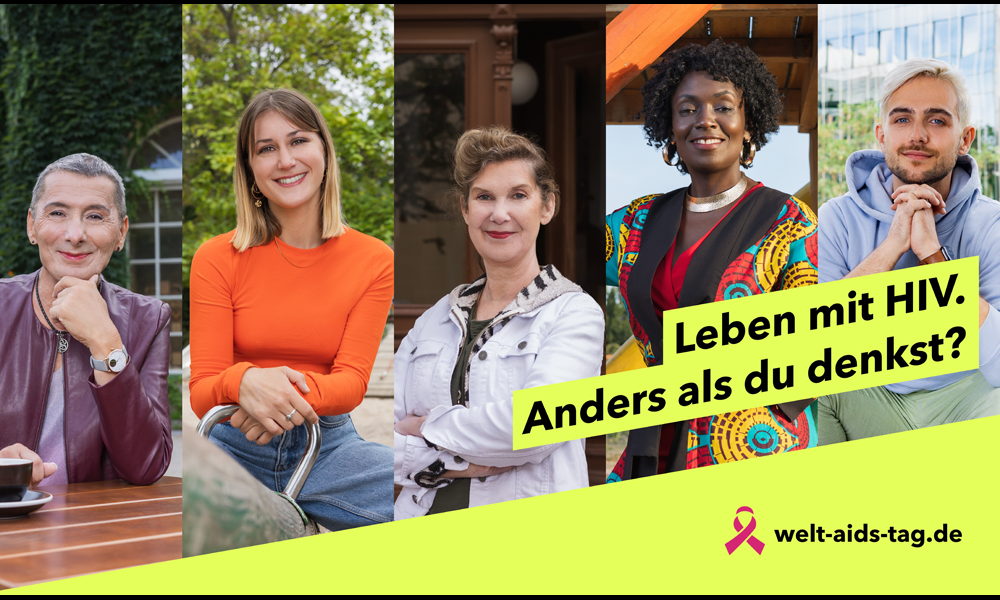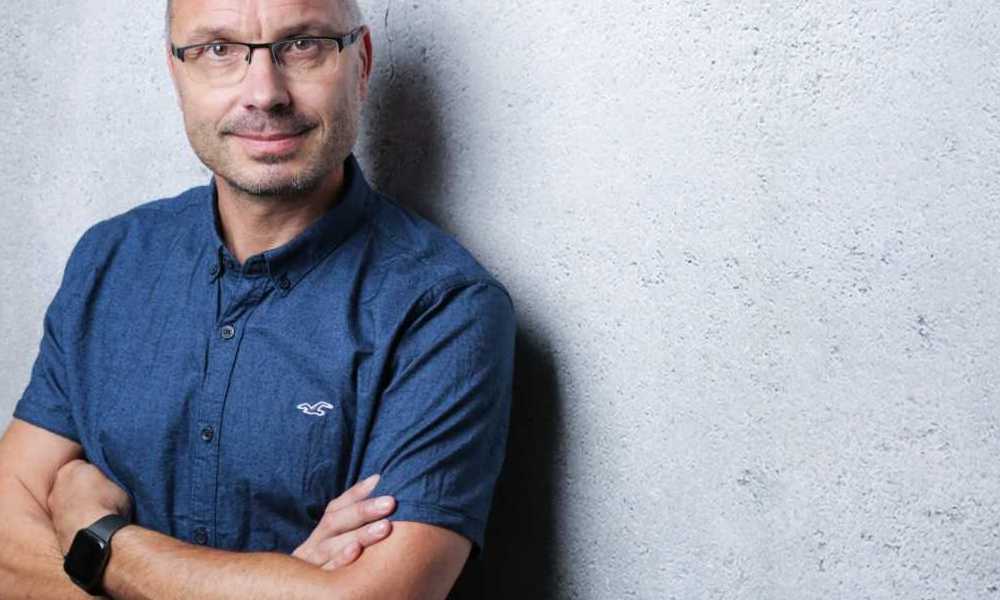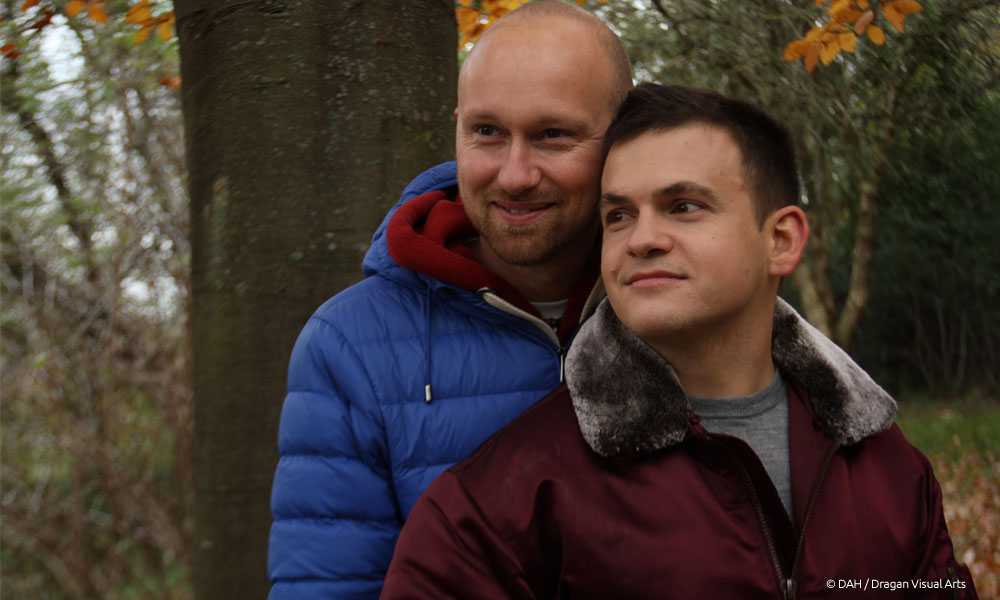Campaign: "Living with HIV. Different than you think?"
The current joint campaign of the Federal Centre for Health Education (BZgA), the German AIDS Service Organisation (DAH) and the German AIDS Foundation (DAS) for World AIDS Day "Living with HIV. Different than you think?" shows: People with HIV can live like everyone else today. And would like to. But the ignorance and prejudices of those around them often make their lives unnecessarily difficult. Education and self-confidence can help against this. People with HIV contradict discrimination, blame and fear of contact. And talk about what life with HIV is really like. "Discrimination? I'm not going to put up with it!" - "Feelings of guilt? I'm not playing along with that!" - "Fear of contact? I don't touch anyone with kid gloves!" - You can find all the stories and information about the campaign here: www.welt-aids-tag.de

© Photo by DAH / Katja Ruge
Current results on living with HIV today
"Prejudice makes me sick! HIV does not!"
The majority of people with HIV surveyed can live well with the infection today. "But at the same time, many experience discrimination and marginalisation on a daily basis," says Matthias Kuske, project coordinator of the Positive Voices 2.0 study. "People with HIV experience discriminatory behaviour or are confronted with prejudice, particularly in the healthcare sector, but also in their private lives, in their sex lives or in the media," continues Kuske.
All of this has a significant impact: As a result of discrimination, many people with HIV have poorer health, less well-being and less sexual satisfaction. In addition, the way they deal with their own HIV infection and their self-esteem are negatively affected by marginalisation and discrimination. Around one in four people surveyed are ashamed or feel guilty about being HIV-positive, or feel that they are not as good as others. A gay man in the study impressively described what this does to people:
"That was on a date in a restaurant. We got to know each other and at some point I told him about my HIV status. And then he just got up and left. And I'm sitting there feeling dirty and worthless - like rubbish. The next date, I didn't tell him until the fifth date, and he was furious and said 'Why didn't you tell me at the beginning? I'm just confused!"
"But I've already had bad experiences, including rejections. A sexual partner had found my medication. Then he quickly wrote a note saying that he had found it and had fled because of it, so he actually apologised a bit. I thought that was really bad at the time. I thought it was a bit exaggerated, he could have just spoken to me." Participants in the study positive voices 2.0 on living with HIV in Germany
Rejection during sex

Prejudices and myths
Don't drink from the same cup? HIV-positive people are all sluts, aren't they? You don't grow old with HIV? These prejudices and myths are still often encountered today. But they have little to do with reality.
People with HIV can lead a good and long life, but...
...of course there are advantages to remaining HIV-negative. The infection has - rightly - lost its horror and is seen as a chronic disease. However, HIV treatment also means taking medication for the rest of your life and having regular check-ups. In addition, many HIV-positive people still experience discrimination and marginalisation in their lives, as the Positive Voices 2.0 study has shown.
What needs to be done?
The good news is that as many as 40 per cent of respondents stated that they have experienced less discrimination since the introduction of protection through treatment. Protection through therapy means that HIV medication suppresses the reproduction of HIV in the body. HIV can then no longer be transmitted during sex. Protection through therapy
HIV is not transmissible under therapy.
Many in the gay community already know this fact, but many still do not.
It is just as important to make it clear that for people with HIV in Germany, it is usually not HIV itself that is the problem, but marginalisation, rejection and discrimination.
We at ICH WEISS WAS ICH TU will continue to ...
- raise awareness of the issue of discrimination against people with HIV in the gay community too
- help to reduce the stigmatisation of people with HIV
- Identify, break down and change discriminatory structures
- show real, authentic images of living with HIV and integrate people living with HIV as an essential part of the campaign
- Strengthen solidarity with stigmatised and discriminated groups.
We need your support, because we can only achieve this together.
Here are a few initial tips on how you can support us:
- Get all the information you need on iwwit.de about "Safer Sex 3.0", living with HIV today or protection through therapy.
- Talk to your friends, family or work colleagues about this page.
- Show solidarity when people with HIV are marginalised or discriminated against! Whether online, in the scene, at work or in your private life.
First steps into a "positive" life: The Buddy Project
The initial reactions after an HIV diagnosis are varied and the question often arises: "What happens next?" Then it is good to know someone with whom you can talk openly about everything - and who also knows exactly what you are talking about.
The "Buddy Project" of Deutsche Aidshilfe helps further: Under www.buddy.hiv newly diagnosed HIV-positive people throughout Germany can look for a buddy, i.e. someone who has been living with the infection for some time and can accompany them on their first steps into a "positive" life.
You want more?

My HIV coming-out: an encouraging story
"I feel strong when my friend is with me". Vlad has HIV, his boyfriend Stephan is negative. What does that mean for their relationship? We spoke to Vlad and wrote down his story.
To the blog postCampaign video
"For me, living with HIV means ..." We asked you to add your own ideas to this sentence. This showed that there are still many prejudices and misconceptions about this topic.
Holger, Florian Prakash, René and Vlad are HIV-positive. In the clip, they talk about what life with HIV is really like today.









